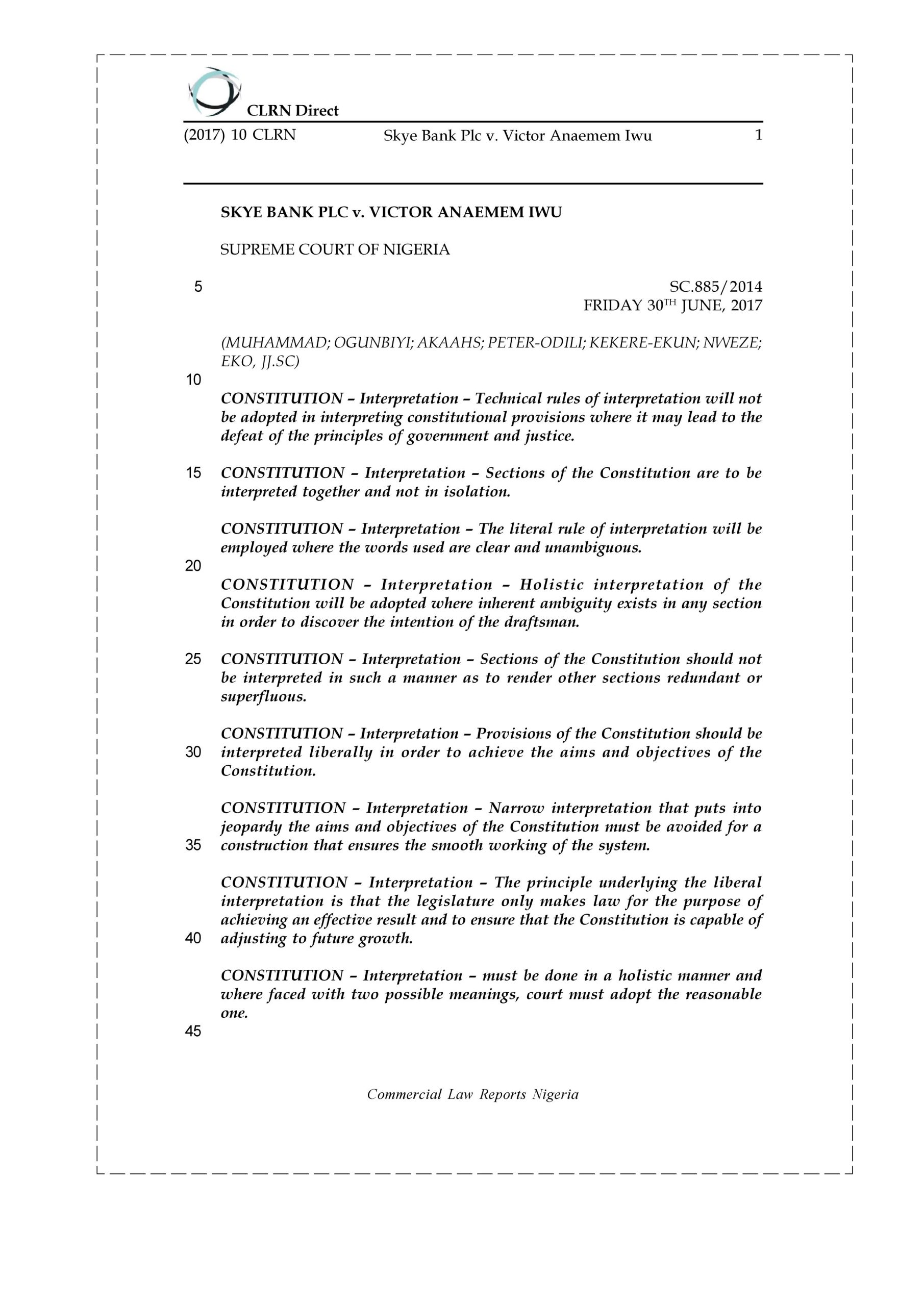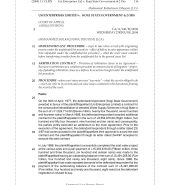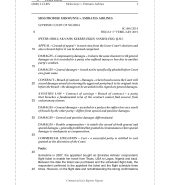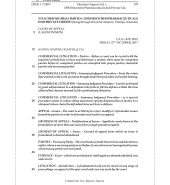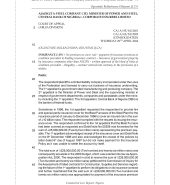-

Air Via Ltd. v. Oriental Airlines Ltd
- kg
1 × ₦300
Skye Bank Plc v. Victor Anaemem Iwu
₦300
In Stock
Facts:
Facts:
The respondent was a former employee of the defunct Afribank Nigeria Plc. In February, 2012 he sued Mainstream Bank Limited the successor-in-title of Afribank Plc at the National Industrial Court, Lagos Division. Afribank Plc had dismissed the respondent from its service in July, 2011 for gross misconduct. The respondent alleged that he was wrongfully dismissed from his employment and that considering the circumstances of his dismissal, his right to fair hearing was violated. The respondent further alleged that while he was in the employment of Afribank Plc, he contributed the sum of N636, 287.55 (Six Hundred and Thirty Six Thousand, Two Hundred and Eighty Seven Naira, Fifty Five Kobo) under the Pension Fund Scheme and a total sum of N1, 690, 498.82 (One Million, Six Hundred and Ninety Thousand, Four Hundred and Ninety Eight Naira, Eighty Two Kobo) under the National Housing Scheme. These sums were alleged to be unremitted by Afribank to the respondent who sought to recover them as well as damages for the alleged wrongful dismissal.
Afribank was in distress and its banking license was revoked by the Central Bank of Nigeria about a month after the dismissal of the respondent. In line with its statutory mandate, the Nigerian Deposit Insurance Corporation (NDIC) took over the administration, management and control of the assets and liabilities of Afribank. However, in August, 2011 the appellant was incorporated and it inherited some assets and liabilities of Afribank Plc. The respondent therefore sued the appellant as the successor-in-title even though at the time, Afrbank Plc was yet to be dissolved or liquidated.
After it was served with the originating process, the appellant filed its defence in addition to a preliminary objection challenging the jurisdiction of the trial court to entertain the matter on the ground that the proper parties were not before the court and that some of the reliefs claimed by the respondent were incompetent and liable to be struck out. In response, the respondent filed a counter affidavit challenging the preliminary objection of the appellant. After hearing the parties on the preliminary objection, the trial court ruled in favour of the respondent dismissing it and held that it had jurisdiction to hear and determine the matter. The trial court in its ruling, also dismissed the further affidavit of the appellant, without any address from the parties, holding that the Rules of the National Industrial Court did not make provision for a further affidavit. The appellant was dissatisfied with the ruling of the trial court and consequently, filed an appeal at the Court of Appeal, Lagos Division asking it to set aside the ruling of the trial court.
In March, 2013 the appellant filed a motion at the Court of Appeal to amend its notice of appeal. The motion was challenged by the respondent on the ground that the Court of Appeal lacked the requisite jurisdiction to entertain the appeal and as such cannot hear an application to amend the notice of appeal. The Court of Appeal ordered the parties to address it on the court’s jurisdiction to hear the appeal. In compliance with the directive, the parties filed their written addresses, argued and adopted them and ruling on the issue was reserved. However, before the court’s ruling could be delivered, the appellant applied to the court by motion urging it to refer the constitutional issues in the matter to the Supreme Court for its determination.
One of the issues for determination was whether there existed any provision of the Constitution divesting the Court of Appeal from exercising appellate jurisdiction on the decisions of the National Industrial Court. This application became necessary because of the conflicting decisions of the Court of Appeal concerning the interpretation of sections of the Constitution relating to the appellate jurisdiction of the Court of Appeal over decisions of the National Industrial Court. While some of the decisions favoured the resolution that the decisions of the National Industrial Court are final and not appealable to the Court of Appeal except on fundamental rights issues, the other decisions tilted towards the resolution that the Court of Appeal is not divested by any provision of the 1999 Constitution from exercising appellate jurisdiction over the decisions of the National Industrial Court.
